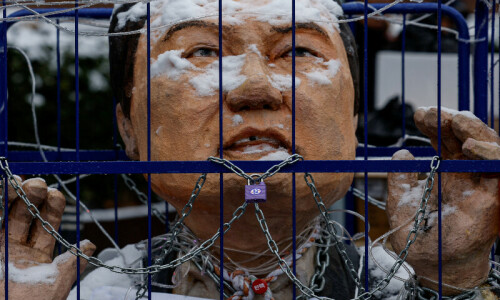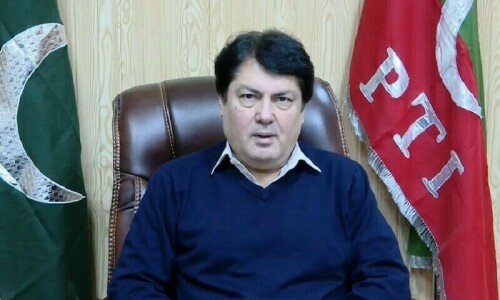
Humble and soft-spoken Muhammad Faiz is known as Faizi among the literary circles. He inherited his love for the homeland from his parents who settled in Lyallpur after surviving the turbulent migration from the then East Punjab in 1947. The sufferings of his family still have an impact on his mind.
Composing poetry and writing short stories since high school days, his works would get printed regularly in children’s magazines.
“After reading my works, Anjum Saleemi and Shabeer Qadri contacted me. That’s how I got connected to the literary circles of Lyallpur. It was renamed Faisalabad, but I feel comfortable with the old name. It was a dreamy era of my life, during the late 1970’s. The city was full of literary activities, ideological debates, dialogue and grooming of young writers was the prevailing culture,” Faizi recalls all in a nostalgic tone.
He has three collections of poetry to his credit, including ‘Seh Roza Hazzian’ published in the early 1990’s.
“I was reading the poetry of Zafar Iqbal with my friends Imtiaz Mirza and Maqsood Wafa. During the reading, I claimed that I can write a poetry book like that within three days. They challenged me to do so. I accepted the challenge and took a three-day leave from my job.
After book was finished, Faizi decided to get it printed with under a pseudonym that looked similar to Zafar Iqbal and in fact it was its distortion. Maqsood Wafa wrote the preface and the book was published by Anjum Saleemi. Recently, it has been posted online by an Indian literary website with Faizi’s own name.
Faizi cherishes the time he had spent with Jaun Elia.
“He was very kind to me. During the last years of his life, whenever he came to Lahore, he stayed with me. He would understand my restlessness. His approval and appreciation encouraged me a lot. He stands tall in the whole crowd of poets and has always been my inspiration.”
Faizi is passionate about his dream project ‘Write to Reform Movement’ with an objective to provide a forum for creative writers which will include setting up the first Pakistani residency for writers.
“The role of writers is important than political leaders. Their writings should have a dialogue with the time they are living in. They must highlight the contemporary issues and provide their solutions, as well.”
Faizi believes that literature has many dimensions and says that writers should create a hero who can bring about a change. He says that through books, films and songs, a better society can be evolved, especially in the countries like Pakistan which are vulnerable to chaos and only visionary writers can make it suitable for a revolution.
Faizi spent almost 15 years in textile sector after earning a degree of Masters in Public Administration from the Quaid-i-Azam University, Islamabad, in 1985.
After failing in couple of projects, including ‘Nextile Pakistan’, which was designed to organise the textile sector of Pakistan by building a new yarn trade market and an Expo Centre in Faisalabad, he got disappointed and opted for writing as the last resort.
“I am writing commercial stuff for TV channels to making a living. My serials Ishq Samandar, Rok Lo Aaj Ki Raat Ko and political satires made a good success in commercial arena. I wasn’t paid as promised but it paved the way for other projects. I am currently writing a serial Jaltay Bujhtay Khawab of a hundred episodes. These are not my dream projects but my source of income.”
Working as a full-time writer, Faizi is living an isolated and low-profile life in a peaceful housing society in the suburbs of Faisalabad.
After finishing a series of 20 short stories, Kaaf Kahani, and a bulk of writings for children, he is currently working on his novel, Zombie.
Faizi’s poetry reflects the agony of a common man, especially the dilemma of a creative person whose potentials are being ruthlessly consumed by the laborious works he is doing to make a living. He is passionate for the working class people and relates his own pain to the sufferings of the masses.
Mostly, writing like traditional Urdu poets, Faizi’s narrative remains romantic but he has a tendency to surprise his readers with a subtle twist by rephrases the conventional concepts in his own innovative style, blended with pinching satire. His poetic craft is mature enough to portray beautifully any subject, either it is traditional or contemporary.
Published in Dawn, October 25th, 2016













































Dear visitor, the comments section is undergoing an overhaul and will return soon.